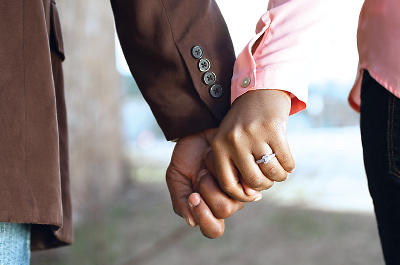Marriage May Decrease Future Risk of Alcohol Use Disorder
Abstract
The protective effect of marriage endured even when statistical analysis controlled for such factors as age, parental education, early-onset externalizing syndromes, or positive family history of alcohol use disorder.
Men and women in a first marriage to a spouse with no history of alcohol use disorder (AUD) are much less likely to experience AUD themselves, according to a report published last month in AJP in Advance and released at APA’s 2016 Annual Meeting in Atlanta.

The study found that marriage generally was protective against the risk of alcohol use disorder: married men and women had, respectively, a 60 percent and 71 percent lower risk for onset of alcohol use disorder compared with individuals who remained single.
“These results are consistent with the hypothesis that the psychological and social aspects of marriage, and in particular health-monitoring spousal interactions, strongly protect against the development of alcohol use disorder,” Kenneth Kendler, M.D., a professor of psychiatry and human and molecular genetics at the Virginia Institute for Psychiatric and Behavioral Genetics and Virginia Commonwealth University, and colleagues wrote.
Kendler and colleagues from the Lund University in MalmɆ, Sweden, used a variety of Swedish national birth, health, and crime registries to assess the relationship between first marriage and subsequent registration for AUD in a large population-based Swedish cohort (n=3,220,628). They also sought to determine the degree to which this association can be explained by parental education, family history, and early history of criminal behavior or drug abuse. Of the more than 3.2 million individuals included in the sample, 72,252 met the criteria for AUD.
They found that while marriage to a spouse without AUD was strongly protective, marriage to a spouse with lifetime AUD significantly increased the risk for subsequent AUD registration in both men and women.
“As expected, we found a substantial main effect of those with a positive family history having a stronger risk for alcohol use disorder,” the researchers stated. “More interestingly, we found robust evidence that the protective effects of marriage were stronger in those with a family history compared to those without. This effect is consistent with recent findings that severe problem drinkers show the greatest decrease in drinking after the transition to marriage. Those at highest risk for alcohol problems appear to be the most likely to benefit from the protective effects of marriage.”
The protective effect of marriage endured even when statistical analysis controlled for such contributing factors as age, parental education, early-onset externalizing syndromes, or positive family history of AUD, the authors noted.
Marc Galanter, M.D., a professor of psychiatry at New York University School of Medicine and an expert in alcohol use disorders, who reviewed the report for Psychiatric News, noted that lead author Kendler has done past important research on genetic vulnerability to alcoholism. “The current study illustrates how environmental issues can be comparably influential,” he said. “The study shows how spousal influence can have a beneficial effect, making alcohol use disorder much less likely to emerge.
“This reflects spousal influence in a naturalistic setting, but in a clinical setting psychiatrists can utilize spousal, family, and other relationships to help promote recovery,” he said. ■
“Effect of Marriage on Risk for Onset of Alcohol Use Disorder: A Longitudinal and Co-Relative Analysis in a Swedish National Sample” can be accessed here.



